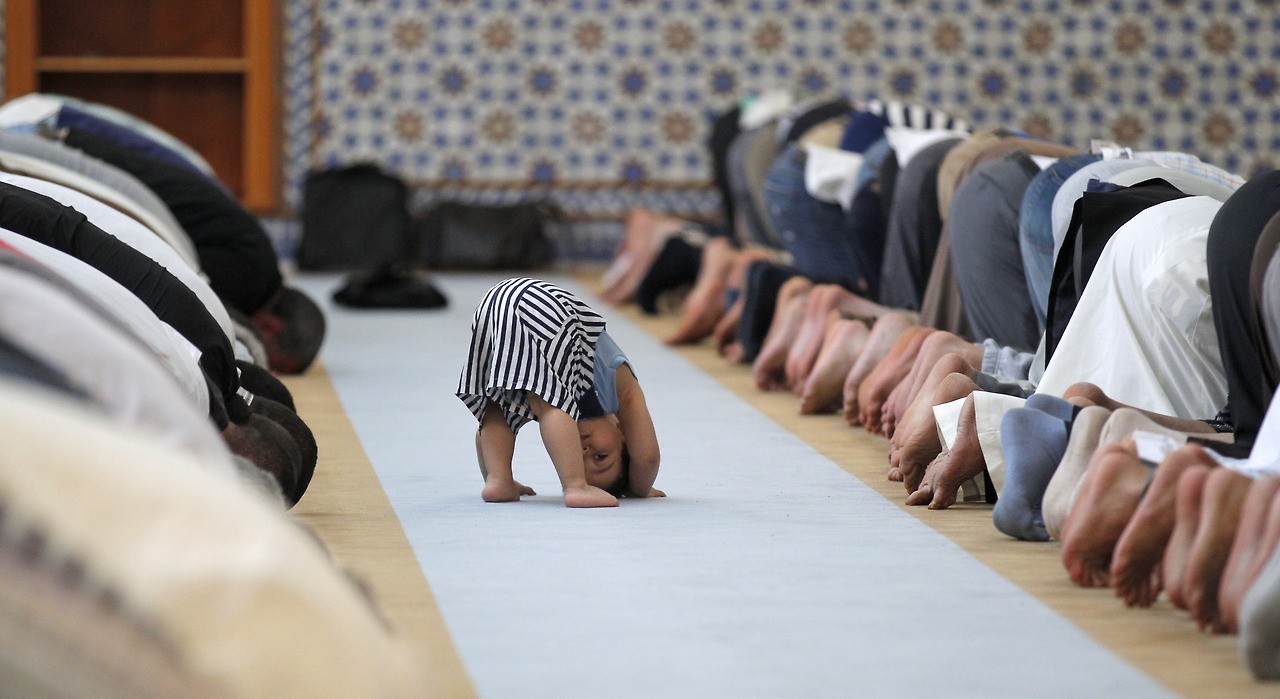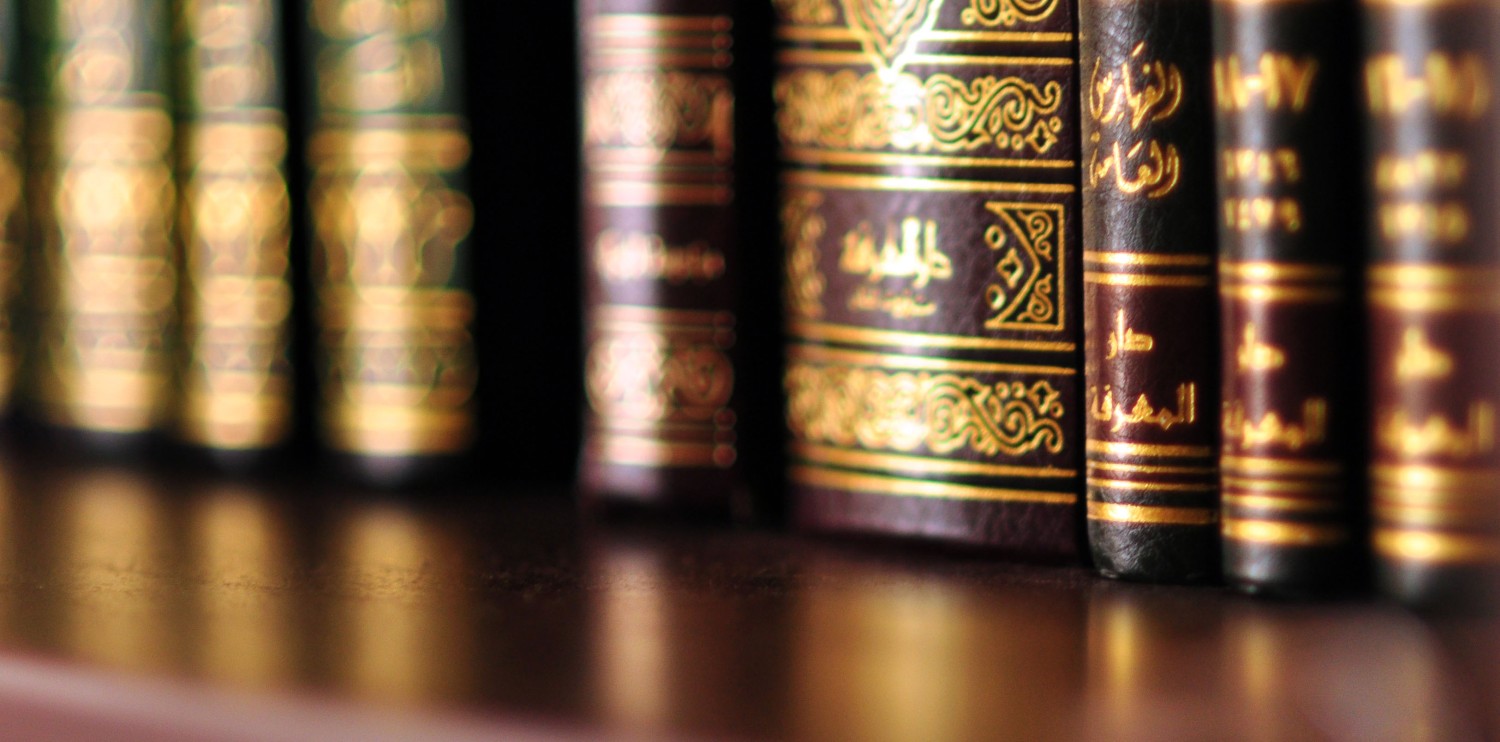Quran
The central religious text of Islam
To believe in the Quran, one must uphold six prime convictions contained in the book:*
#1. The Quran is the word of God.
#2. The Quran is perfect with no contradictions.
#3. The Quran is comprehensible and with no ambiguity.
#4. The Quran is straightforward with no crookedness.
#5. The Quran is complete.
#6. The Quran is fully detailed: it encompasses all matters.
The Quran is the central religious text of Islam, which Muslims believe to be a revelation from God. Muslims believe that the Quran was verbally revealed by God to Muhammad through the angel Gabriel. The Quran says about Allah in Surah 2:32Glory to Thee, of knowledge We have none, save what Thou Hast taught us: In truth it is Thou Who art perfect in knowledge and wisdomand in Surah 15:25He is perfect in Wisdom and Knowledge.The Quran says about itself in Surah 54:5 that it isPerfect wisdom. If the Quran were perfect it should not contain any errors or contradictions. But is it perfect?
Which version?
Currently there are 5 different versions of the Quran found in the Muslim ummah. [1:52] Difference in word patterns, differences in nouns, different in a singular or plural noun, and similarly in declensions of Arab. And then there are differences in particles also. [5:02] In many cases it does change the meaning. [7:24] The Quran can be read in various ways, in multiple ways. [9:20] The Quran we have today with us is not complete. It is imperfect. [14:32]
Which is the correct version? Well, that already demolishes some of the fundamental principles mentioned earlier.
Compilation of the Quran
Although the Prophet Muhammad himself could neither read nor write, he dictated the verses orally and instructed scribes to mark down the revelation on whatever materials were available: tree branches, stones, leather, and bones. The scribes would then read their writing back to the Prophet, who would check it for mistakes. With each new verse that was revealed, the Prophet Muhammad also dictated its placement within the growing body of text. When the Prophet Muhammad died, the Quran has been fully written down. It was not in book form, however. It was recorded on different parchments and materials, held in the possession of the Companions of the Prophet. After the death of the Prophet Muhammad, the entire Quran continued to be remembered in the hearts of the early Muslims. Hundreds of the early Companions of the Prophet had memorized the entire revelation, and Muslims daily recited large portions of the text from memory. Many of the early Muslims also had personal written copies of the Quran recorded on various materials. Ten years after the Hijrah (632 C.E.), many of these scribes and early Muslim devotees were killed in the Battle of Yamama. While the community mourned the loss of their comrades, they also began to worry about the long-term preservation of the Holy Quran. Recognizing that the words of Allah needed to be collected in one place and preserved, the Caliph Abu Bakr ordered all people who had written pages of the Quran to compile them in one place. The project was organized and supervised by one of the Prophet Muhammad's key scribes, Zayd bin Thabit.*
The Quran was compiled in the most odd way. It seems to me that this is not a very trustworthy method for compiling a book. It is not difficult to understand that the result of such a way of working has led to much discussion regarding the chronology and it is undoubtedly also linked to the Quran being open to interpretation.
Open to interpretation
Quran - Surah 3:7
It is He who has sent down to you, [O Muhammad], the Book; in it are verses [that are] precise - they are the foundation of the Book - and others unspecific. As for those in whose hearts is deviation [from truth], they will follow that of it which is unspecific, seeking discord and seeking an interpretation [suitable to them]. And no one knows its [true] interpretation except Allah. But those firm in knowledge say, "We believe in it. All [of it] is from our Lord." And no one will be reminded except those of understanding.
The precise order of chapters in the Quran is not known and opinions among Muslim scholars vary. Not surprisingly, the Quran and many of its verses are open to interpretation. Many verses are unspecific, meaning they can be explained in various ways.
Muqatta'at
Quran - Surah 2:1
Alif, Lam, Meem.
What does that mean? These three words are called a Muqatta'at. Muqatta'at are unique letter combinations that appear in the beginning of 29 suras (chapters) of the Qur'an. Their meanings remain unclear and are considered by most Muslims to be divine secrets. Apparently nobody knows what these words mean. Why put words and sentences in a book that are not comprehensible? Then the following verse in the Quran reads...
Quran - Surah 2:2
This is the Book about which there is no doubt, a guidance for those conscious of Allah...
But the doubt was already in the previous verse in the form of a Muqatta'at.
Creation days?
Quran - Surah 7:54a
Indeed, your Lord is Allah, who created the heavens and earth in six days and then established Himself above the Throne. ...
According to this verse the heavens and the earth were created in 6 days...
Quran - Surah 41:9-12
Say, "Do you indeed disbelieve in He who created the earth in two days and attribute to Him equals? That is the Lord of the worlds." And He placed on the earth firmly set mountains over its surface, and He blessed it and determined therein its [creatures'] sustenance in four days without distinction - for [the information] of those who ask. Then He directed Himself to the heaven while it was smoke and said to it and to the earth, "Come [into being], willingly or by compulsion." They said, "We have come willingly." And He completed them as seven heavens within two days and inspired in each heaven its command. And We adorned the nearest heaven with lamps and as protection. That is the determination of the Exalted in Might, the Knowing.
Or were the heavens and the earth created in 2 + 4 + 2 = 8 days? Now see how a Muslim scholar handles this...
source
Whether the word "ayam" means literal days or not doesn't make any difference in this question, the number should be the same. Now the word "summa" or "thumma" which according to this Muslim scholar can mean three things, "then", "moreover", or "simultaneously". He then says that many Quran translators translated the word as "then". But then he says that in this verse it's supposed to mean either "moreover" or "simultaneously" and he insinuates that then there's no contradiction and the last two days mentioned are supposed to fall within the 6 days of creation. According to Cambridge Dictionary synonyms of the word "moreover" are "in addition (to), furthermore, as well (as)". Thesaurus also gives synonyms like "furthermore, besides, further, more, what is more, in addition". So this word does not mean something like "simultaneously".
According to an Arabic guy on Quora "summa" meansafter some time, then (used when talking about a series of events (for example I did this “summa“ that).* According to an Arabic person on a website called IslamicboardThumma's meaning is "al tarteeb wa al tarakhi". Tarteeb has to do with ordering, so when you say several things, they are ordered one after the other. ... So if I say "Akaltu fa sharibtu", it means I ate then immediately drank. But if I say "Akaltu thumma sharibtu", it means I ate, then after a while, drank.* On the same website someone asked what the word thumma means, the answer is:Then, thereupon, afterwords, thereafter, after that, next, later, later on, subsequently, moreover, furthermore, besides.*
source
So it doesn't mean "simultaneously", but something similar to "subsequently". It's about an order of events, not about an event included in a previous event. It seems to me this Muslim scholar, Zakir Naik, is trying to fit the word with the meaning he wants it to be. A deceiver.
Idolatry
Quran - Surah 2:34
And [mention] when We said to the angels, "Prostrate before Adam"; so they prostrated, except for Iblees. He refused and was arrogant and became of the disbelievers.
Here the angels are ordered to "prostrate" before Adam, the created man who would later sin and lead all mankind into corruption and death. To prostrate means to put or throw flat with the face down, as in submission or adoration. Prostrating is an act of worship. Muslims do it several times a day. To prostrate before Adam is idolatry. In Surah 2:163 it saysAnd your god is one God. There is no deity [worthy of worship] except Him, the Entirely Merciful, the Especially Merciful. So Allah makes angels bow down to Adam, a man, while later on he says that nobody is worthy of worship except himself. Muhammad and Allah are not consistent.
Corruption
Quran - Surah 2:30
And [mention, O Muhammad], when your Lord said to the angels, "Indeed, I will make upon the earth a successive authority." They said, "Will You place upon it one who causes corruption therein and sheds blood, while we declare Your praise and sanctify You?" Allah said, "Indeed, I know that which you do not know."
This is about the creation of Adam. Despite the fact that angels couldn't have known yet that Adam would get corrupted in the future, they ask whether Allah will create a creature that will cause corruption on the earth. Allah says he will. So according to the Quran itself the corruption and evil in this world are the creation of Allah. In Surah 2:205b it says... and Allah does not like corruption. Apparently Allah doesn't like corruption, but he created it. Allah himself is corrupt.
Abrogation
Quran - Surah 2:106
We do not abrogate a verse or cause it to be forgotten except that We bring forth [one] better than it or similar to it. Do you not know that Allah is over all things competent?
Abrogation ... is a term used in Islamic legal exegesis for seemingly contradictory material within or between the two primary sources of Islamic law: the Quran and the Sunna. Several Qur'anic verses state that some revelations have been abrogated and superseded by later revelations, which are understood by most Muslim scholars as pertaining to the verses of the Quran itself.
By means of abrogation Muslims try to explain away contradictory verses in the Quran by stating that later verses in the Quran supersede earlier contradictory verses. Another problem is the fact that nobody knows the exact chronology of the chapters in the Quran. So which verse came later? Allah changed his mind with time and it is completely contrary to the Scriptures which clearly state that God is unchangeable (Malachi 3:6) and doesn't change His Mind (Numbers 23:19). Absolute truth doesn't change and is perfect at all time. Allah however is prone to change. He is simply a part of the creation and not the perfect Creator as Muslims would like to make themselves and the world believe. Abrogation shows the weakness and fallibility of the imperfect Quran.
Sunnah & Hadith
Sunnah is the verbally transmitted record of the teachings, deeds and sayings, silent permissions (or disapprovals) of the Islamic prophet Muhammad, as well as various reports about Muhammad's companions. Along with the Quran (the holy book of Islam), the Sunna makes up the two primary sources of Islamic theology and law. The Sunna is also defined as "a path, a way, a manner of life"; "all the traditions and practices" of the Islamic prophet that "have become models to be followed" by Muslims.
A hadith is one of various reports describing the words, actions, or habits of the Islamic prophet Muhammad. The term comes from Arabic meaning a "report", "account" or "narrative". Hadith are second only to the Quran in developing Islamic jurisprudence, and regarded as important tools for understanding the Quran and commentaries (tafsir) written on it.
The Sunnah and Hadith are the second most important texts concerning the Quran and Muhammad. The idea to have texts besides the Quran in order to explain the Quran and Muhammad is contrary to what the Scriptures teach. The Scriptures teach that they are self-explanatory and need no extra-Scriptural texts to be understood correctly. For example the life of YHWSO is completely described in the Gospels and other books, it doesn't need further clarification from outside the Bible in order to be understood properly. In fact, the Scriptures themselves recommend to stick to the Scriptures only in order to prevent corruption from outside. We are not in need of anything else to know who YHWSO was and what His purpose and message was. This is of course logically expected from a book which claims to provide the Truth inspired by God. Obviously, this doesn't go for the Quran which is open to interpretation. Furthermore it should be obvious that using imperfect texts written by imperfect beings as an explanation for the Quran, which is claimed to be a perfect book by Muslims themselves, shows that such people have twisted minds and believe in corrupt and illogical ideas.



